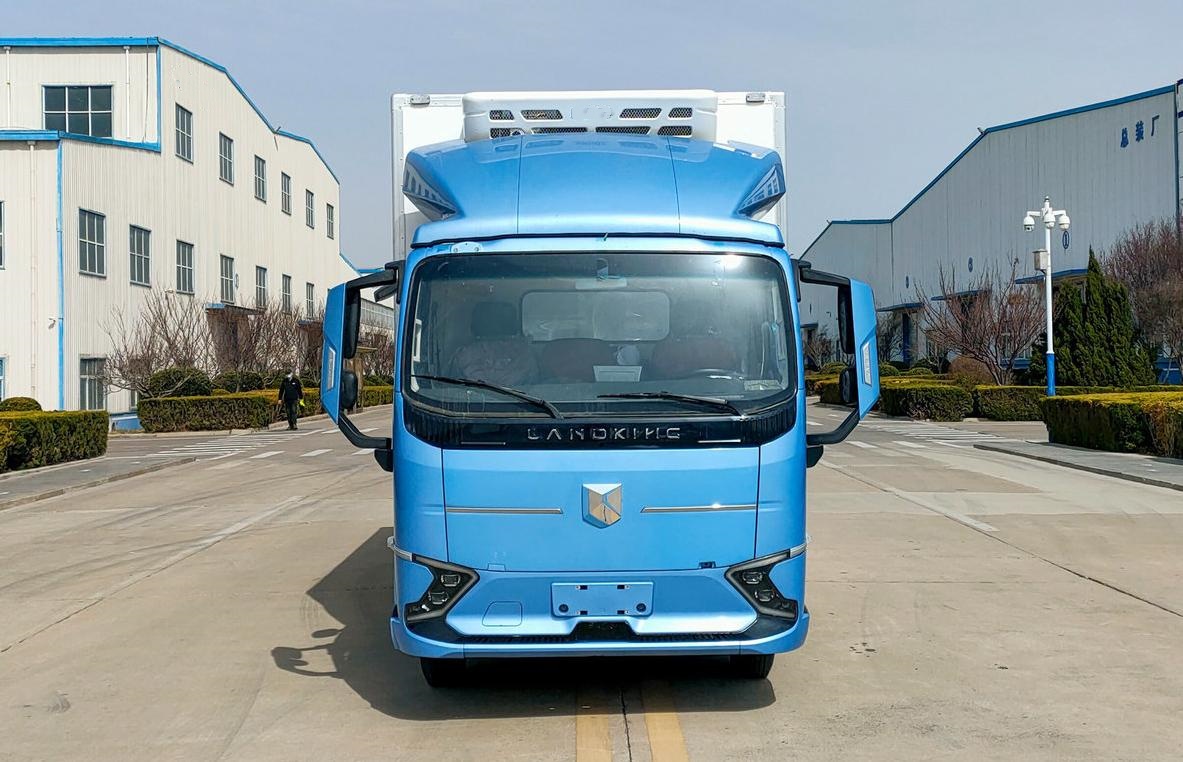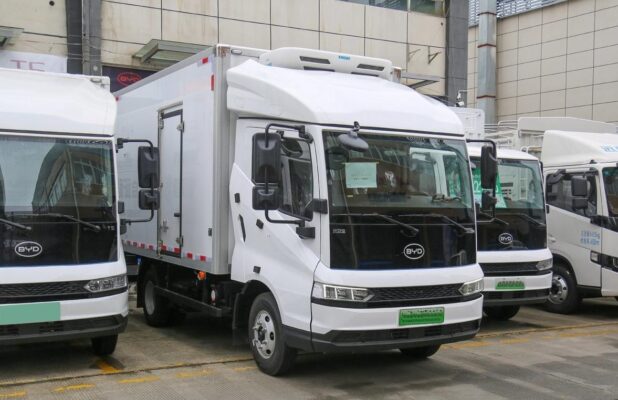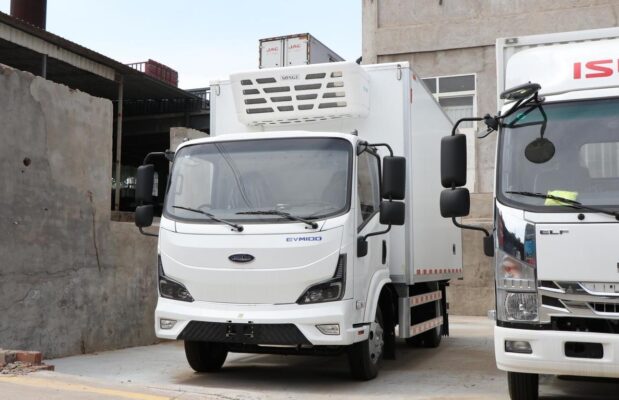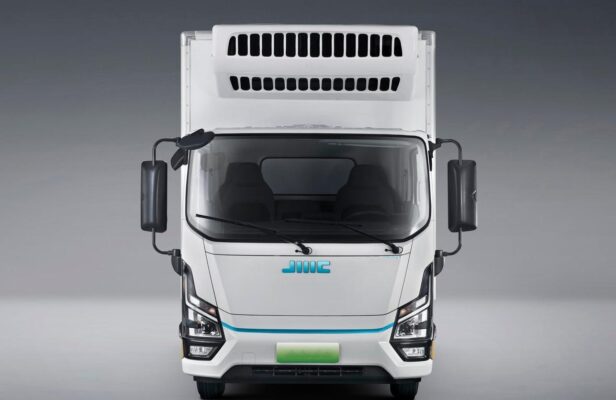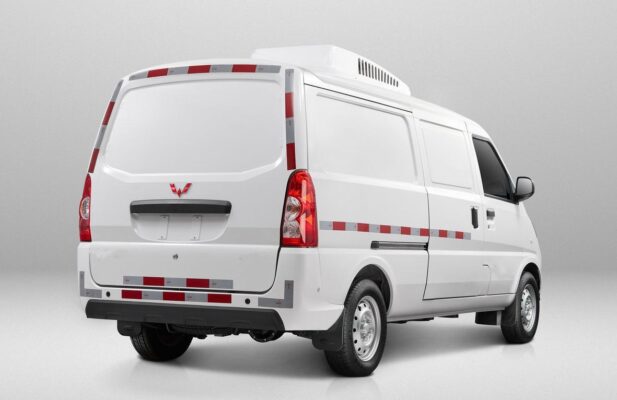Habari za Lori la Umeme
Jukumu la Mifumo ya Akili katika Malori ya Kuchukua Umeme
Electric pickup trucks, a cornerstone of the evolving automotive landscape, are designed not only for environmental benefits but also to offer advanced functionality through the integration of intelligent systems. These trucks showcase a range of innovative features that distinguish them from traditional fuel-powered vehicles, with intelligent systems being particularly prominent. But what drives the need for so many intelligent systems in electric pickups, and how do they enhance their functionality?
1.Why Electric Pickup Trucks Rely on Intelligent Systems
Electric pickup trucks, more complex than traditional vehicles, require sophisticated systems for real-time monitoring, control, and optimization of vehicle components. Intelligent systems in electric pickups serve multiple purposes:
- Energy Efficiency: Battery management is crucial in electric vehicles, where energy reserves must be used efficiently. Intelligent systems analyze battery levels, output requirements, and environmental factors to optimize energy usage. These systems can adjust battery output based on the vehicle’s immediate power needs, extending range and improving efficiency.
- Enhanced Control and Performance: Electric trucks rely on precise control over various components, including electric motors, to ensure optimal performance. Intelligent systems continuously monitor motor parameters, such as speed and torque, and adjust power delivery in real-time based on driving conditions. This boosts the vehicle’s responsiveness and efficiency, ensuring consistent performance across a range of scenarios.
- Safety and Driver Assistance: Electric pickups are equipped with intelligent systems that enhance safety, offering advanced driver-assistance features, real-time hazard alerts, and automatic response mechanisms. These systems help minimize risks by monitoring potential dangers and intervening when necessary.
- Connected Experience: Intelligent systems in electric trucks enable seamless vehicle-to-cloud connectivity, allowing for features like remote diagnostics, software updates, and driving assistance. This connectivity enhances user convenience and enables a more personalized driving experience.
2.Key Intelligent Systems in Electric Pickup Trucks
Electric pickups use various intelligent systems that work together to ensure optimal performance, ufanisi, and safety.
- Power System Control
Power system management is essential to ensuring the electric motor functions at peak efficiency. Intelligent control algorithms monitor motor metrics like speed, torque, and heat generation. They adjust power output dynamically based on real-time driving conditions, preventing overheating or excessive energy usage and ensuring the motor delivers smooth, reliable power. This control capability is especially important during activities such as towing or off-roading, where torque requirements can fluctuate. - Energy Management Systems
Intelligent energy management systems are critical to the efficiency and range of electric pickups. They continuously monitor and control energy flows between the battery, motor, and other systems. Through features like regenerative braking, they recapture and reuse energy that would otherwise be lost, extending the vehicle’s range. Furthermore, these systems optimize charging processes to prolong battery life and maximize charging speed. - Road Condition and Environment Awareness
Electric pickups feature road condition awareness systems, which include cameras, radar, and other sensors that assess real-time environmental factors such as road surface quality, traffic patterns, and weather conditions. This information enables the vehicle to adjust its performance to suit current conditions, improving safety and comfort. For example, these systems can modify traction and braking in response to icy or wet roads, providing an extra layer of control and stability. - Safety and Driver Assistance Systems
Intelligent safety systems in electric pickups include advanced driver-assistance features such as lane-keeping assistance, automatic braking, adaptive cruise control, and rollover prevention. These systems actively monitor the vehicle’s surroundings, alerting drivers to potential hazards and taking preventive measures when necessary. This not only increases safety but also reduces driver fatigue, especially on longer journeys or during heavy traffic. - Vehicle Connectivity and Remote Access
Connectivity is a hallmark of modern electric pickups, offering real-time remote access and control options for drivers. Through smartphone apps and cloud services, drivers can monitor battery levels, start or stop charging, locate nearby charging stations, and even control in-cabin temperature settings remotely. This feature-rich connectivity enables a more personalized and convenient user experience, adapting to individual needs and preferences.
3.How Intelligent Systems Enhance the Driving Experience in Electric Pickup Trucks
The intelligent systems within electric pickups provide substantial enhancements to driving quality, ufanisi, and safety. Here’s a closer look at their impact:
- Optimized Power and Efficiency
Intelligent systems for power control and energy management ensure that electric pickups operate as efficiently as possible. They optimize battery use, managing power demands based on driving style and terrain to extend range. For example, on downhill slopes, the system may reduce motor output and use regenerative braking to recapture energy, thereby maximizing efficiency. - Enhanced Safety and Driver Comfort
Advanced safety features like automated emergency braking, rollover prevention, and collision avoidance bring a new level of security to electric pickups. These intelligent safety systems intervene when they detect hazardous situations, either by issuing warnings or taking action to prevent an accident. Zaidi ya hayo, adaptive cruise control and lane-keeping assistance make long drives less demanding, allowing drivers to focus on the road with reduced stress. - Seamless Connectivity and Convenience
The connectivity features in electric pickups provide drivers with unprecedented control over their vehicles. Whether through an app or a digital assistant, drivers can remotely manage key settings, monitor vehicle health, and access up-to-date navigation. For example, the system may suggest the nearest charging station when battery levels are low, taking into account real-time traffic data to find the quickest route.
4.Future Trends in Intelligent Systems for Electric Pickup Trucks
Intelligent systems in electric pickups are rapidly evolving, with future trends expected to enhance automation, connectivity, na ufanisi.
- Integration with Artificial Intelligence (AI) and Machine Learning
AI-driven intelligent systems will make electric pickups even more responsive and adaptive. By learning from driving patterns and analyzing large datasets, these systems will be able to anticipate maintenance needs, optimize driving routes, and refine battery management to fit individual usage patterns, further enhancing range and efficiency. - Advancements in Autonomous Driving Capabilities
As autonomous driving technology advances, electric pickups are likely to feature increasingly sophisticated levels of driving automation. From hands-free highway driving to self-parking features, intelligent systems will offer a seamless transition toward fully autonomous capabilities. This could prove particularly valuable for commercial users, reducing driver workload and potentially improving delivery efficiency. - Smart Energy Management and Integration with the Power Grid
Intelligent systems will become even more integral to smart energy management, interacting directly with the power grid to optimize charging times. This capability, known as vehicle-to-grid (V2G) integration, will allow electric pickups to feed energy back to the grid during peak hours, helping stabilize the electrical grid and offering potential cost savings to owners. - Enhanced Connectivity and User-Centric Customization
With continuous advancements in connectivity, electric pickups will become more personalized, able to remember driver preferences for climate settings, seat adjustments, and preferred routes. Future intelligent systems may also integrate with smart home devices and IoT networks, offering new ways for drivers to interact with and manage their vehicles. - Interconnected Electric Ecosystem
Intelligent systems will increasingly connect with broader infrastructure, such as charging networks, public transportation systems, and energy management platforms. This interconnected ecosystem will enable electric pickups to seamlessly integrate with a larger, sustainable transportation network, enhancing functionality and reducing environmental impact.
Hitimisho: The Essential Role of Intelligent Systems in Electric Pickup Trucks
Intelligent systems in electric pickups represent a fusion of technology, energy efficiency, and user-centric design, elevating the performance, usalama, and driving experience of these vehicles. By managing power output, improving energy efficiency, enhancing driver safety, and enabling seamless connectivity, these systems redefine what pickups can offer in terms of both functionality and convenience.
As electric pickup trucks continue to evolve, intelligent systems will play a critical role in advancing toward a sustainable future. Integrating artificial intelligence, improved connectivity, and greater automation, these systems are set to deliver increasingly innovative solutions that meet the needs of modern drivers, paving the way for a future of smarter, safer, and more sustainable electric vehicles.
